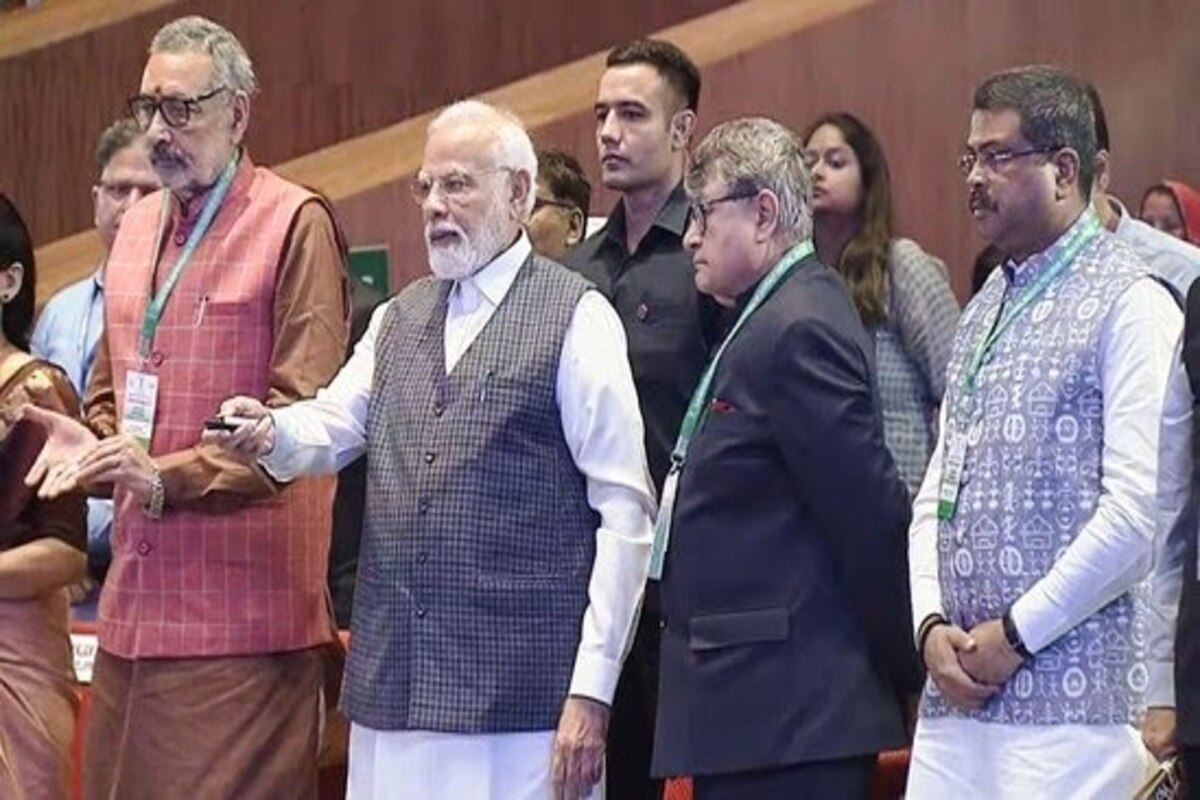PM says India delivers what it promises, calls MP land of limitless opportunities
He pointed out that Madhya Pradesh has immense potential in all three sectors, and lakhs of new jobs would also be created in these fields.
The Prime Minister said the aspirational blocks programme was based on the success of the 112 Aspirational Districts Programmes which had brought the districts’ development to national levels.

Prime Minister Narendra Modi inaugurated the week-long program known as 'Sankalp Saptaah' for Aspirational Blocks (Photo: Twitter)
Prime Minister Narendra Modi on Saturday said that the convergence of schemes and optimum utilization of resources can speed up development at ground level with minimal cost, and aspirational blocks can come out of their backwardness and become inspirational for their states.
He was launching a unique week-long programme for 500 Aspirational Blocks in the country, called Sankalp Saptaah, at Bharat Mandapam here. He launched the Aspirational Blocks Programme (ADP) Portal also and inaugurated an exhibition on the occasion.
Advertisement
The Prime Minister said the aspirational blocks programme was based on the success of the 112 Aspirational Districts Programmes which had brought the districts’ development to national levels.
Advertisement
He told the officials to focus on five parameters for the Blocks and improve them. “I am sure within a year the 100 aspirational blocks will become inspirational blocks for the whole State,” he said.
“Work in mission mode, I want officials to bring the 100 blocks to the national level. I will meet you again in October-November, 2024 and review the progress, and hear success stories of at least 10 persons,” he said.
The Prime Minister said, “In any list of the top 10 programmes of Independent India, the Aspirational District Programme (ADP) will figure in golden letters.”
The ADP transformed the lives of about 25 crore people in 112 districts in the last five years, he said. Quality of life and ease of governance has changed. People have come out of their status quoist approach to life.
Stressing on the merits of convergence, he said if there is optimum utilization of resources and convergence of schemes, then block development can be taken care of with minimal expenditure.
For example, in MGNREGA, there can be convergence with road construction or building of water storage with MGNREGA work. The first condition of good governance is optimum utilization of resources, he said.
The Prime Minister said resources should not be prioritized to areas which are doing well already. This would mean pushing resources into areas of abundance and lead to wastage. Resources should be distributed equally and should be need-based and this would result in their better utilization.
The Prime Minister said his government has focused on outcome of budgets also, along with output data which shows only expenditure of allocations. “I have a long experience of government running. Budgets or financial allocations alone do not bring change,” he said.
The thinking that Government alone will do everything was old and should be given up. There is big force in society and it should be employed through Jan Bhagidari, he said.
Calling for holistic development, the Prime Minister said that all parts and regions of the country should be looked after. “Absence of all-encompassing development, touching everyone, benefiting all may show numerical development but basic development does not take place. That is why it is important that we should move while covering every grassroots parameter.”
The Prime Minister urged the Secretaries of departments present on the occasion to work in two new directions. Rapid development of every state and handholding of backward districts. He asked them to identify 100 blocks in the country that are lagging behind in their respective departments and work towards improving the conditions.
He insisted that all parameters of development would change once the 100 identified blocks move above the country’s average. He suggested that all departments from the Centre emphasize development of the blocks which have room for improvement.
Highlighting the role of state governments, the Prime Minister suggested identifying the 100 most backward villages and creating a model to improve them which can be further replicated to develop the next 1000 villages.
India is 75 years old now. Referring to the promise of making India a developed nation by 2047, the Prime Minister said that being developed does not mean developed metro cities only and villages remain backward.
“We don’t follow that model, we wish to move with 140 crore people,” he said. We want their lives changed. I have seen healthy competition among districts in the Aspirational Districts programme and it helped achieve results. This is an area in which data cannot be cooked up.
The Kutch district in Gujarat was once considered a place for punishment posting for officers, and has now become the most respectable place for posting, the official posted there is today considered a favourite of the Government, with dedication and diligence of officers posted there after the earthquake, he said.
He credited young officers for the developments carried out in the aspirational districts of the country. For the Aspirational Block programme also, the Prime Minister suggested the state government should encourage young officers by giving them good postings.
Advertisement